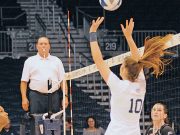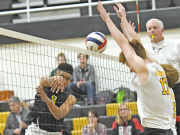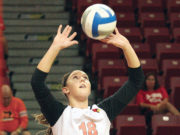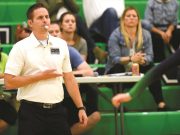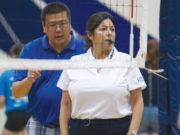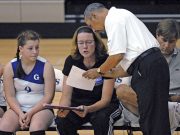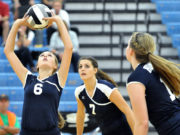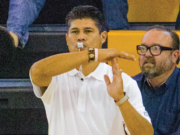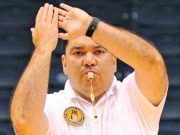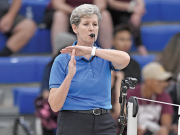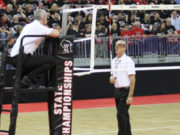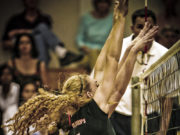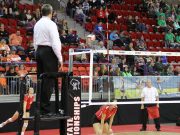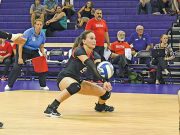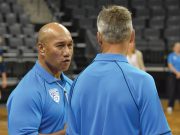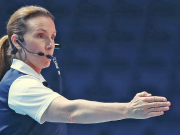Volleyball
Keep-It-Flying Approach Is Challenging
One of the biggest areas of concern during a match for coaches and referees is ballhandling. Ballhandling decisions can make or break a match. In recent years, volleyball...
Four Hits or First Contact? Techniques and Tips for One of Volleyball’s Toughest Calls
Volleyball referees are tasked with making many split-second decisions during a match. One area where coaches, spectators, players and referees see things differently is when an attacked ball is...
5 Rule Differences Every Referee Must Know
Many volleyball referees work multiple sports. While it is difficult to keep all the rules straight from sport to sport, it is unlikely a...
Did You Hear What I Didn’t Say?
As most volleyball officials would agree, non-verbal communication encompasses approximately 80-90 percent of our communication with coaches, players, partners and fans. There are so...
Don’t Compound Missed Calls
We have all made mistakes, there are plenty of reasons why, but officials can't compound missed calls with phantom calls.
It can happen with ballhandling....
Discreet Signals and Teamwork To Get Out of Hairy Situations
The duties of the first and second referees are delineated in the rulebook. In the best of cases, this division of duties ensures that, between them, the referees...
The Changing Role of Volleyball’s Second Referee
To the casual fan, the role of the second referee can appear to be minor: check lineups, call nets and manage timeouts and substitutions....
Train Your Brain
Do you ever wonder if you have the correct type of brain for officiating? Do you find it easy to make a quick decision based...
Nothing But Net
Work Together to Correctly Call Faults
It should be easy, but there are many factors that play into our accuracy of whistling net faults. As...
Match Scoring is One of Your Most Important Tasks
Hey, referees. Remember years ago, when you used to show up at a match, went about your pre-match duties and focused on your responsibilities...
Hold It! Who Handles Ballhandling?
A primary responsibility of the first referee is to determine whether a player makes legal contact each time he or she plays the ball....
Veteran Approach
As we prepare for each season, we study rules and interpretations, casebooks and officiating manuals, and attend preseason clinics and meetings. And once the season starts, we usually have...
Second Referees Need Training Too
Very early in my officiating career, I received a call to officiate a local collegiate match. My partner was someone I had not worked with previously. While I thought...
Find a Happy Ballhandling Medium
Where do I draw the line with ballhandling? When do I want to make my “presence” known in the match by making that first ballhandling call? Am I being...
Get A Grip
I
t’s tough to get officials on the same page when determining the three toughest calls in volleyball. There are many strong feelings and opinions...
Spirit and Intent Influence Interpretation
When considering the rules, spirit and intent influence interpretation. It would be easier if every rule was black and white. No wiggle room. We...
Still Work to Be Done When There’s a Break in Play
The referees accept the coach’s or captain’s request for timeout and blow the whistle, starting the timeout procedure. Both teams usually move to the benches for a quick...
Always Time for Teachable Moments
Whether it is during the prematch conference or a postmatch debrief, a formal evaluation or a self-evaluation, or in a classroom clinic setting, we...
Aim High By Working Lower Levels
Once we obtain an officiating certification, it seems that many of us want to jump in and start working the highest levels of play...
No Tunnel Vision With Wide-Angle View
What problem is most common among second referees? Some might say coaches chewing them out about questionable decisions or missed calls by the crew....
Take Your Line Judge Game to the Next Level
Line judging, at any level, has its challenges. The game can move quickly and there are so many things to watch and think about...
When Not To Be Subtle As the Second Referee
Communication between first and second referees is essential in communicating decisions to players, coaches, assistant officials and spectators. Precisely executed, established signals indicate the referees are competent and in control of...
Timing and Tact Crucial to Constructive Feedback
One of the best parts about belonging to the cadre of volleyball officials is the chance to be around others who love the game...
Pati Rolf Moved From College Coach to High Level Official and Has Never Looked...
A lime green toy pig, gifted to Pati Rolf by the distraught motorist who accidentally struck her on snowy Minnetonka Boulevard in Hopkins, Minn., nearly 50 years ago, endures all...

